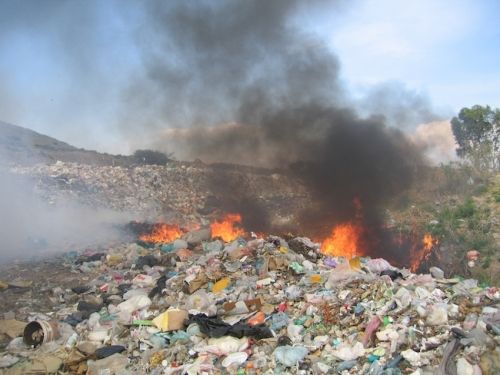ENVIRONMENT

ACT NOW ON AIR POLLUTION, EXPERTS WARN NIGERIA AND OTHER NATIONS
Lagos, April 24, 2025 – At the International Summit on Climate Change/Air Pollution, health experts and researchers called on policymakers in developing countries, particularly Nigeria, to take decisive action against air pollution, which they described as a "silent killer."
The summit, jointly organized by the Nigerian Heart Foundation (NHF) and Manchester 1824 of the University of Manchester, was held at the Nigerian Institute of Medical Research in Yaba, Lagos, under the theme: "Advancing Air Quality Policy through Innovation, Research and Youth Engagement."
Health Impacts and Policy Recommendations
Professor Akin Osibogun, Professor of Public Health at the University of Lagos, emphasized the severe health consequences of climate change and air pollution. "Our people need to know that climate change affects the respiratory tract causing respiratory diseases," he said. "It's affecting the cardiovascular system, so there are cardiovascular diseases, including hypertension. And current studies have also shown that atmospheric pollution is related to Diabetes Mellitus and aggravates other non-communicable diseases as well."
Osibogun, who also serves as Executive Director with the Non-Communicable Diseases (NCD) Alliance Nigeria, stressed the need for proactive policymaking: "It's not sufficient to ask people not to cook with firewood without providing the enabling environment for them to use alternatives." He added that policy enforcement should focus on environmental protection rather than revenue generation.
A Tragic Case Study
Professor Obuks Ejohwomu from the University of Manchester shared a poignant case study to illustrate the dangers of air pollution. He recounted the story of Ella, a nine-year-old girl who died due to exposure to air pollutants. "This meant that when she was going to school, she was exposed to pollutants. When she entered her house, she was also exposed to pollutants," Ejohwomu explained.
The professor issued a stark warning: "If such could happen in a developed country, only God knew how many lives had been lost to exposure to air pollution in developing countries." He described air pollution as "a silent killer" that requires immediate action: "We must act now to put in actions. Act now! The evidence is already visible."
Calls for Comprehensive Action
The summit featured several key recommendations for addressing air pollution:
1. Policy Implementation
- Adoption of WHO Global Air Quality Guidelines
- Development and enforcement of local air quality standards
2. Public Education
- Integration of climate change studies into school curricula
- Widespread awareness campaigns about pollution risks
3. Sustainable Solutions
- Promotion of clean cooking alternatives to firewood
- Urban planning initiatives to reduce pollution exposure
4. Research and Monitoring
- Enhanced air quality monitoring systems
- Increased funding for pollution-related research
Dr. Kingsley Akinroye, Executive Director of NHF, emphasized the collective nature of this challenge: "People should be discouraged from using firewood and our government should support this initiative. We must have friendly cooking stoves if we don't have to use firewood."
The summit concluded with a strong call to action, urging immediate measures to protect public health from the growing threat of air pollution. As Professor Osibogun succinctly put it: "That is where we should be going."
"This represents a significant development in our ongoing coverage of current events."— Editorial Board









